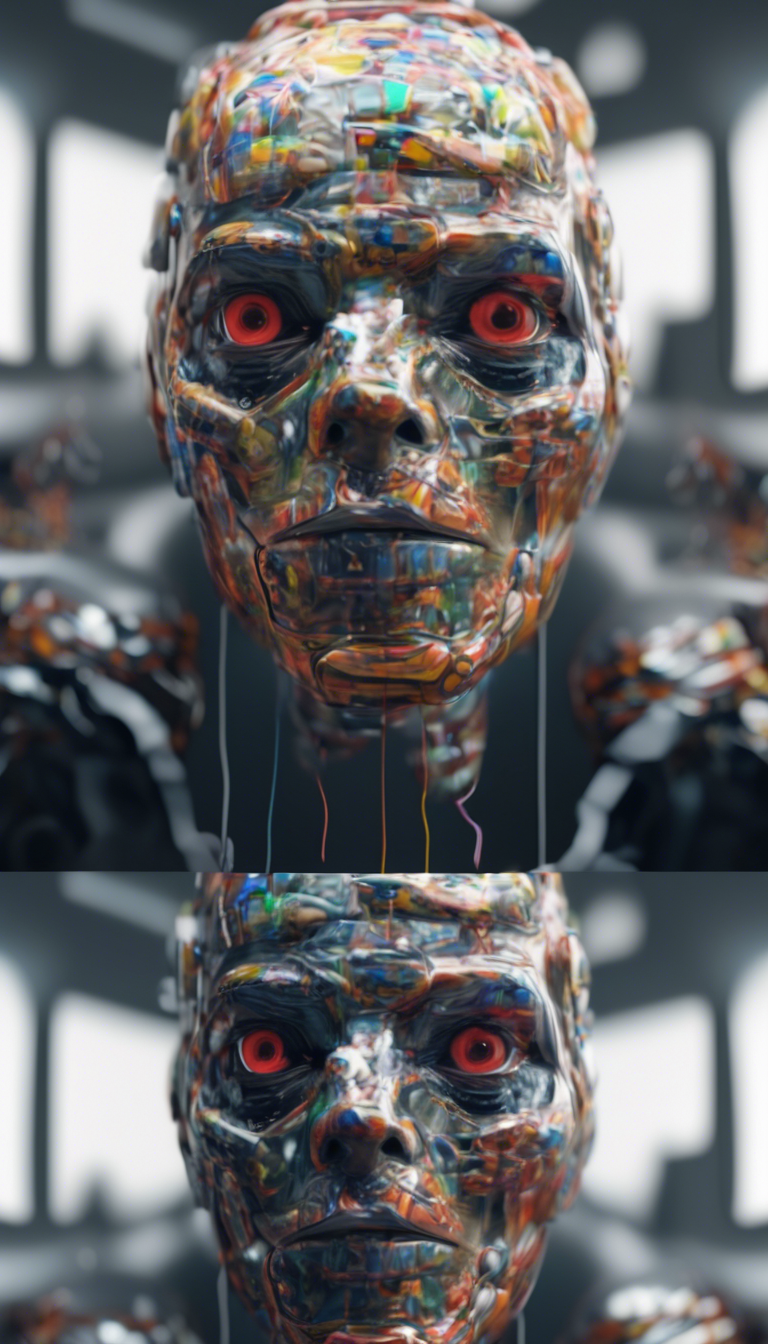The Impact of Content Creation AI on Modern Marketing Strategies
The evolution of technology has substantially altered the landscape of marketing, ushering in the role of content creation AI. This artificial intelligence not only streamlines the content creation process but also enhances the overall effectiveness of marketing strategies. The integration of AI into content generation offers marketers unprecedented opportunities to engage with their target audience.
One key advantage of using AI for content creation is its ability to analyze vast amounts of data quickly. By processing user behavior, preferences, and trends, AI can provide insights that guide marketers in crafting tailored content. This targeted approach not only increases engagement but also improves conversion rates. Marketers can now anticipate what their audience desires, allowing them to create more relevant content with less guesswork involved.
Additionally, AI-driven content creation tools can expedite the writing process. These tools can generate blog posts, product descriptions, and social media posts in a fraction of the time it would take a human writer. This efficiency can significantly reduce operational costs for businesses. Marketers can focus more on strategy and ideation while leaving repetitive tasks to AI. The result? Teams can produce more content without sacrificing quality.
However, the human touch remains crucial in marketing. While AI can analyze data and produce content rapidly, it lacks the emotional understanding and creativity inherent in human writers. Successful marketing strategies should combine the strengths of AI with human intuition. For instance, marketers can use AI tools to generate first drafts but should refine and personalize the content to resonate authentically with their audience.
The integration of AI into content marketing also offers personalization at scale. With AI’s ability to segment audiences based on diverse criteria such as demographics and previous interactions, marketers can tailor content specifically for different customer profiles. This personalization not only enhances user experience but also fosters customer loyalty as individuals feel more valued when they receive content that speaks directly to their needs and challenges.
Here are several ways that content creation AI is currently transforming modern marketing strategies:
- Content Optimization: AI tools analyze existing content and provide suggestions based on SEO best practices, ensuring that content is both engaging and optimized for search engines.
- Trend Tracking: AI algorithms can monitor social media and online conversations to identify trending topics, allowing marketers to create timely and relevant content.
- Performance Analytics: AI analyzes campaign performance and provides actionable insights, guiding marketers in tweaking strategies for better results.
- Automated Content Scheduling: Many AI platforms can automatically schedule and publish content across different channels, ensuring consistency without extra manual effort.
Moreover, content creation AI allows for improved collaboration among marketing teams. With tools that share workflows, deadlines, and feedback loops, team members can work more cohesively. This level of organization promotes an environment where creativity flourishes, ultimately leading to more innovative marketing campaigns. As teams streamline their processes through AI, they can allocate more time to brainstorming and executing unique ideas.
As businesses leverage content creation AI, ethical considerations also come into play. Transparency regarding the use of AI in content generation can enhance brand trustworthiness. Marketers should be open about automated content to maintain authenticity and credibility. This practice can also contribute to the establishment of a strong brand identity in a world increasingly reliant on technology.
The impact of content creation AI on modern marketing strategies is profound. By incorporating AI into their workflows, marketers can produce personalized content quickly and efficiently, providing immense value to their target audiences. Striking the right balance between AI-generated material and human creativity will define the success of future marketing efforts. As AI technology continues to evolve, it’s essential for marketers to stay adaptable and innovative, leveraging these advancements to carve out their niche in an ever-changing digital landscape.
Ethical Considerations in the Use of AI for Content Development
The emergence of artificial intelligence in content development has transformed how writers, marketers, and businesses approach their strategies. While AI offers remarkable efficiency and creativity, it also raises important ethical considerations that deserve attention. The responsibility lies with users to navigate these complexities thoughtfully.
First, consider the authenticity of AI-generated content. The line between human writing and AI text generation can blur. As AI tools become sophisticated, they produce increasingly convincing content that resembles human authorship. This brings forth the question of originality. Users must ensure that the AI-generated content does not inadvertently copy existing works, which can lead to legal ramifications and tarnish reputations. Upholding intellectual property rights and fostering original ideas should be at the forefront of AI usage in content creation.
Further, it’s crucial to recognize the potential bias in AI systems. Most AI programs learn from vast datasets that may be skewed or imbalanced, reflecting existing prejudices. For instance, if an AI learns from texts that predominantly represent certain viewpoints, it may perpetuate those biases in the content it generates. Content creators should be vigilant in examining the AI’s outputs for bias or harmful stereotypes. This includes actively choosing diverse datasets when training AI models and employing methods to audit and adjust content for fairness and inclusivity.
- Transparency: Users should be transparent about the use of AI in their content creation processes. Audiences often value authenticity, and disclosure can help maintain trust.
- Quality Control: Implementing a review process for AI-generated content can safeguard against inaccuracies and ensure adherence to quality standards.
- User-Centric Approach: Prioritizing audience needs over mere content quantity can guide ethical AI engagement in content development.
Another area of concern is the potential for dependency on AI tools. While these technologies can enhance efficiency, over-reliance can diminish human creativity and critical thinking. Writers should view AI as a supportive tool rather than a replacement. Balancing the strengths of human creativity with AI efficiency can yield more impactful content. Engaging in thoughtful brainstorming sessions and idea generation, where both AI assistance and human insight thrive, can lead to better results.
Moreover, respecting user privacy is paramount. AI systems often collect vast amounts of data to train their algorithms and generate personalized content. Users must understand how this data is gathered, stored, and utilized. Developing AI responsibly requires a commitment to protecting personal information and complying with applicable regulations. Businesses that prioritize data ethics not only adhere to legal standards but also build lasting customer trust.
Content creators should also consider the environmental impact of AI technologies. The computational power required for extensive AI training can contribute to significant energy consumption. By promoting efficient algorithms and encouraging sustainable practices, content developers can minimize their carbon footprint while adopting AI solutions. This might involve choosing AI models that are less resource-intensive or advocating for the use of renewable energy sources in data centers.
It’s essential to foster a culture of ethical reflection and continuous learning among those involved in content creation. AI technology evolves rapidly, and so too do the ethical implications that arise from its use. Engaging in ongoing discussions about ethical practices, attending workshops, and collaborating with other professionals can enhance awareness and drive responsible AI usage.
In an era where AI greatly influences content development, being mindful of these ethical considerations can guide users toward responsible practices. The landscape of content creation is evolving, and navigating the complexities of AI implementation will define the integrity and authenticity of that content in the future. As creators harness the potential of artificial intelligence, balancing innovation with ethical commitment will undoubtedly lead to richer, more meaningful narratives.
Ultimately, the choice lies in the hands of content creators to use AI responsibly, ensuring it serves as a tool for enhancement rather than compromise.
Conclusion
The rise of content creation AI has significantly transformed modern marketing strategies, offering businesses new avenues to engage their audiences. As marketers increasingly embrace AI-driven tools, the potential for personalized content has expanded. These tools analyze vast amounts of data, providing insights that can tailor marketing messages to specific audience segments. This level of customization can enhance user experience and drive conversions, making AI a pivotal asset in the marketing toolkit.
However, while performance-driven results are compelling, they come with their set of challenges. Engaging audiences is no longer merely about delivering content; it’s essential to uphold ethical standards as we integrate AI into content development processes. Companies must navigate the murky waters of automation, maintaining authenticity and accountability. The line between human creativity and machine-generated content can easily blur, leading to concerns over transparency. For instance, if a blog post or social media update is created by AI, audiences have a right to know. This transparency fosters trust, which is fundamental for long-term relationships with customers.
Furthermore, the efficiency of content creation AI raises ethical issues regarding originality and ownership. When AI generates content, questions arise around who owns that material and whether it can infringe upon copyright laws. Companies must ensure that their use of AI does not compromise the hard work of human creators. Balancing innovation with respect for original work is crucial in building a responsible content strategy.
Additionally, the diversity of voices in content creation is another vital point to consider. AI tools typically learn from existing data sets that may perpetuate biases present in the source material. This can inadvertently lead to the reinforcement of stereotypes or the marginalization of underrepresented groups. Companies that depend solely on AI without human oversight run the risk of diluting their brand identity and alienating segments of their audience. Integrating diverse perspectives within the content creation process ensures that the narratives presented are broad-based and inclusive.
Marketers must also consider the emotional aspect of storytelling. AI can generate content, but it often lacks the nuanced understanding of human emotions that a skilled writer possesses. Great content resonates because it connects with readers on a personal level, something that AI-driven content may struggle to achieve fully. As such, a hybrid approach that combines AI’s data-driven efficiencies with the creativity of human storytellers can yield the best outcomes. This model allows marketers to harness the strengths of both worlds, ensuring content remains relatable and genuine.
Moreover, as AI technology continues to evolve, so too should the strategies employed by businesses. The key to successful content creation is ongoing adaptation and learning. Companies should actively assess the performance of AI-generated content, gathering feedback and making adjustments to refine their approach. This iterative process not only enhances content quality but also helps businesses stay ahead of trends and evolving audience preferences.
Engaging with AI in content creation is a journey, not a destination. Marketers are urged to remain vigilant about the ethical implications of their choices, keeping in mind their audience’s perceptions. Fostering a culture of accountability and transparency will boost brand loyalty and customer satisfaction—essentials in a saturated market.
The intersection of content creation AI with modern marketing strategies presents exciting opportunities and pressing ethical challenges. As businesses navigate this complex landscape, they must prioritize transparency, respect for original creations, and the diverse representation of voices. Combining innovation with human creativity will ultimately yield more authentic, compelling content that resonates with audiences. Companies should welcome this era of AI in content creation, understanding that the human touch remains irreplaceable. By doing so, they can build robust, credible marketing strategies that not only leverage technology but also honor the values of their brand and their audience. Through mindful practices, organizations can successfully integrate AI into their content creation process, paving the way for a future where ethical considerations and effective marketing coexist harmoniously.


